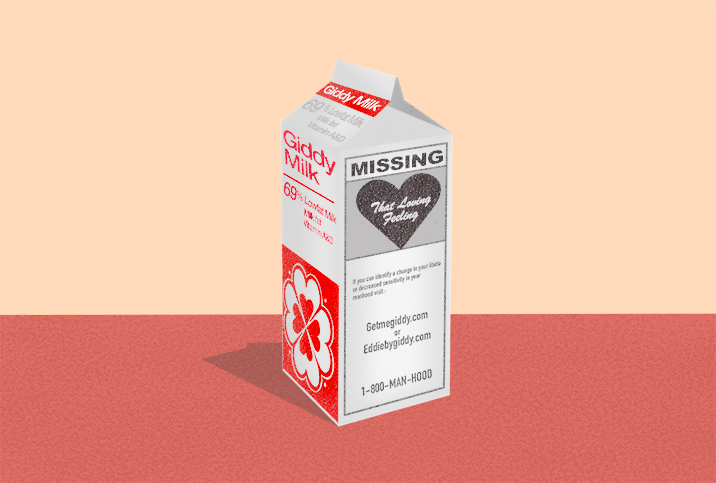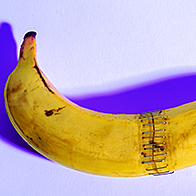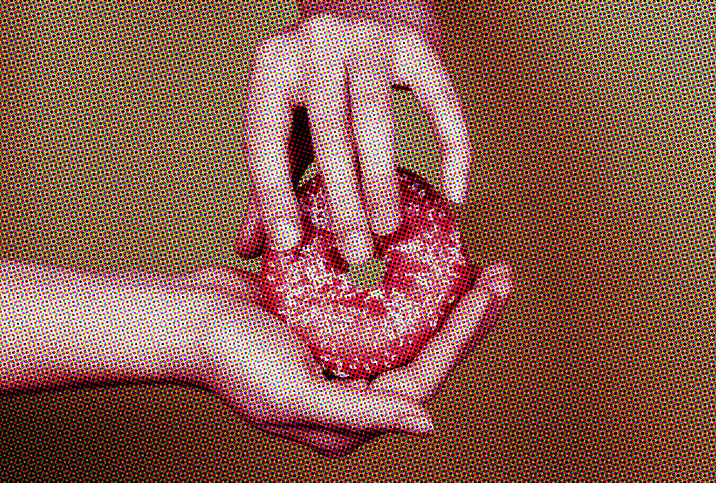You've Lost That Lovin' Feeling: Decreased Penile Sensitivity

The penis has thousands of nerve endings, so it makes sense that when something starts to affect said nerve endings, it can translate to decreased sensation, whether during sex, urination or otherwise.
"We see sensitivity issues in medical patients, neurological incidents, folks that use bicycles for long instances and patients with Peyronie's disease, [among other issues]," said Ali Afshar, M.D., a urologic surgeon with San Fernando Valley Urological Associates in California.
Decreased penile sensitivity is more common than men would like, primarily because of some common causes. Let's look at a few of these issues and potential treatment options.
ED is a common link
Erectile dysfunction (ED) is primarily a blood-flow issue. Many men who experience ED suffer from decreased sensitivity because the penile nerves don't get enough blood and they falter as a result.
Diabetes affects the smallest nerves and arteries in the body, which can cause decreased sensitivity or peripheral neuropathy, which is nerve damage outside the brain and spinal cord that leads to further malfunction, including in the genitals, said Cleveland Clinic urologist Petar Bajic, M.D.
Both urologists stressed that finding the root cause of the diminished sensitivity is as important, if not more so, as treating the symptom. ED can present based on cardiovascular or neurological issues, so a full slate of tests often helps determine the source of the impaired functionality.
According to Afshar, a common first course of treatment is to put a patient on an ED medication or testosterone to see if this restores some or all of the penile sensitivity. If that doesn't work, he suggests further testing and, potentially, surgery if the cause of the loss of sensitivity ends up being a physical issue.
Physical trauma can play a role, too
If something is physically wrong with the penis, the nerves that create sensitivity can be directly affected.
A great example is Peyronie's disease, in which the angled curvature and buildup of plaque can lead to a decrease in sensitivity, according to Afshar. In these cases, he tries the usual injection and therapeutic routes to reduce curvature, which works sometimes, but in more severe cases, surgery may be required to correct the curvature.
He also mentioned instances when regular cyclists lose sensation in their perineum—the area between the base of the scrotum and the anus—due to the constant pressure of sitting on a bike seat. This pressure can lead to malfunction of the nerves in the area and reduced sensation, including in the penis. Afshar normally suggests riding the bike less so the nerves can heal. Severe and rare cases can lead to a condition called saddle anesthesia, which may result in loss of bowel function and may progress to paralysis if it is not treated immediately.
"If there are further issues with nerve entrapment, I'd communicate with a neurologist to better understand [treatment options]," he added.
Bajic mentioned a condition that is predominant in women but also occurs in men: pelvic floor dysfunction.
He said doctors don't fully understand how the muscular dysfunction of the pelvic floor affects sensitivity, but it can come with several urinary symptoms (pain, decreased flow), sexual complaints, and muscle strain in the hips and lower back, particularly while walking.
Mental health plays an important role
Don't underestimate the impact anxiety, depression and other mental conditions can have on penile sensitivity and performance.
"You have to talk about mental status," Afshar said.
Some level of sexual dysfunction, including decreased orgasms and quality of performance, has been reported with the use of virtually all classes of antidepressants, noted a 2010 study published in the Drug, Healthcare and Patient Safety journal.
Both urologists stressed that finding the root cause of the diminished sensitivity is as important, if not more so, as treating the symptom.
However, Afshar was quick to note that patients who benefit from antidepressants or other mental health medications should be wary of stopping them to improve sexual function and sensitivity.
"You might be fixing one thing but destroying the other," he said.
Bajic added that certain nerve and anticonvulsant medications, such as gabapentin, can blunt nerve signals in other parts of the body, leading to decreased penile sensation.
Antidepressants can throw nerve signals off-kilter and cause genital sensation issues.
The bottom line: Treating decreased penile sensitivity requires a much deeper look at a patient's overall medical history and recent issues. Finding the root cause can clarify your treatment options.




















